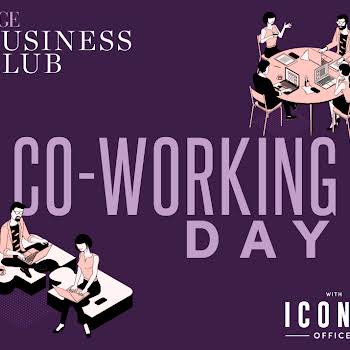By Sinead Brady
29th Mar 2018
29th Mar 2018
Is work-life balance really possible? Career Psychologist, Sinéad Brady, provides real-world tips for achieving the perfect blend of work and life
The notion that the 168 hours available to us weekly can be divided into nice, neat piles simply doesn’t work. In fact, the pursuit of balance is elusive and rather than helping relieve pressure, in many ways, it applies even more pressure as we chase it. In a world where the boundaries between work and life are permanently blurred, we have to re-evaluate how we think about balance in order to actually achieve it.
Establish where you spend your time
There are 168 hours in a week: this is an insurmountable truth. So how and where do you spend this time? Start with sleep, for example. If you get the recommended 8 hours per night required for optimum health you are down to 112 hours. The average work week is 39 hours with 7 hours for your commute you are left with 66 hours per week. Assuming that you have to do non-fun things like routine errands, housework, food shopping, and cooking which averages 13 hours per week you have 53 hours left. You also have to take your lunch break at work – a statutory entitlement – and eat when you are at home. This is another 10 hours which means you have 43 hours left to play with. Assuming it’s a 5-day work week, take away 28 hours for your two free days (this includes sleep and non-fun chores) you are left with 3 hours per working day to establish the work-life blend that works for you.
Tech Check
The average Irish person spends 4 hours per day on their phone or connected to technology in some way. Check out how much time you spend on your phone using Moment – the app that tracks how much time you actually spend on your phone and evaluate exactly the impact technology is having on your time and ultimately your life.
Basic Boundary Questions
Use these boundary questions to establish your answers. Basic to life they focus on how you fuel yourself and come in the form of a quick five-point checklist-
1. Did I eat today?
2. Did I move today?
3. Did I rest today?
4. Did I get fresh air today?
5. Did I spend time with the most important people in my life today?
Based on your lifestyle non-negotiables these basic guiding questions establish your personal boundaries. And let’s face, it is usually the personal boundaries that we struggle most with. By asking yourself these questions at the end of the day, you check-in with yourself and provide yourself with the raw data you need to figure out where you are at. If you need to recalibrate in order to better manage the blend between work and life, you now have a blueprint and a starting point.
Work out your key ingredients
Once the basics are in place, blending requires some form of segmenting! Be really clear and specific about the who, the what and the where. Naming and owning these key personal ingredients are vital for your survival and essential if you want to thrive both personally and professionally. Block out time Block out time that you commit to immersing yourself in your key ingredients. Your time blocks might be early in the morning or late at night, whatever works for you. Make sure that this time is work and work-related technology free.
Be flexible
While you have time blocked out and planned, it doesn’t mean that you will achieve it 100% of the time. What it means is at the very least you are conscious of the times that you choose to sub your key ingredients out for other things. The important thing is to remember that when you choose to sub that this is the exception as opposed to the rule. Know and understand where you are willing and want to spend your time so that you find the blend of time that works for you and makes you feel more personally and professionally fulfilled. Finding a work-life balance that works for you may not be easy but is definitely worth the effort. Progressing in our career is made all the more difficult if we don’t look after ourselves, mentally and physically. Remember, if you don’t design a career that you love, someone else will do it for you. And you may not like their version.























